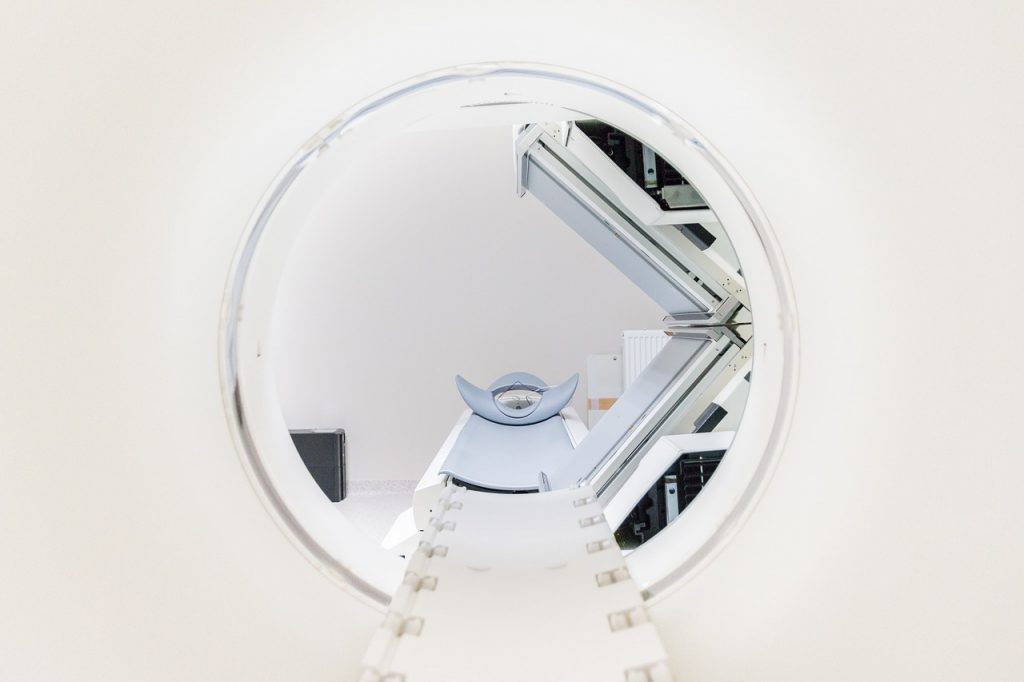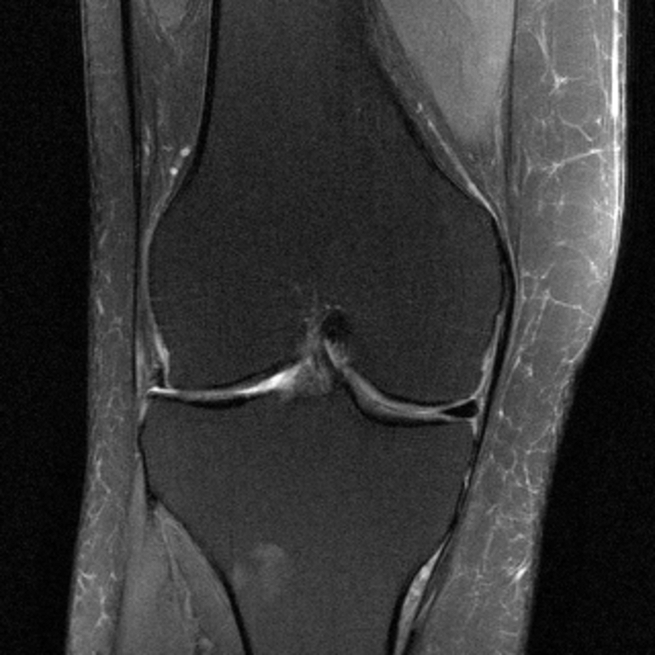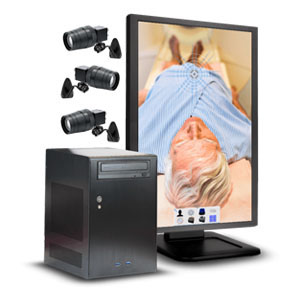A.I for a Faster Scan Time?

Getting an MRI scan means being completely still in a noisy, claustrophobia-inducing tube. It is considered a fact that many people, including children, don’t like the experience. So, in order to make these diagnostic tools run even faster, researchers are exploring & incorporating a new tactic: using artificial intelligence to take the raw data generated by the MRI machine and create readable images with less time required.
The reason MRI scans are slow, explains Daniel Sodickson, a professor in the department of radiology at NYU School of Medicine, is that they need to capture all the data necessary to generate a nice image for a radiologist to interpret. A knee scan can take around 15 to 20 minutes; a brain, 30 minutes; imaging a heart can last an hour. But what if you could run that machine faster and still get a usable image?
Using AI, “it may be possible to capture less data, and therefore image faster, while still preserving—or even enhancing—all the rich information content of the magnetic resonance images,” Sodickson says.
Here’s how they’d do it: They’d run the MRI scan faster, gathering less raw data in the process. But instead of interpreting that raw data the traditional way—which involves a tried-and-true non-AI mathematical process—they train artificial intelligence to do the data-to-image conversion. If researchers try to interpret the fast-MRI data in the traditional way, the results are bad, because there’s not enough data in the first place. With AI, they are better.
The goal right now is to be able to run an MRI scan as much as 10 times faster and get an image with the required accuracy. Researchers at NYU have been working on this idea since 2016, and now they’ve announced they’re partnering with the AI research wing of Facebook, called FAIR, to push it forward.
Faster MRIs would be a good thing—patients would spend less time in machines, and imaging centers and hospitals could do more tests per day. Another benefit suggested by this research is that if an MRI could run fast enough, a physician could order one of those scans instead of a traditional X-ray or CT exam—and save the patient from the dose of radiation they’d get otherwise, since magnetic resonance imaging doesn’t use radiation to do its job as those other scans do.
The project represents an interesting approach to incorporating artificial intelligence into medicine. AI is frequently used to analyze what is in an image; in everyday life, those images could be pictures of pasta or hot dogs uploaded to Yelp, for example. Or, in the case of medical images like X-rays, research studies have explored using AI to analyze tuberculosis in X-rays or knees from MRIs. And in a collaboration between Alphabet’s DeepMind and Moorfields Eye Hospital in England, AI will analyze three-dimensional scans of the backs of patients’ eyes and even suggest treatment.
But in this case, the strategy is different: the AI is helping create the image in the first place.

Non-A.I MRI Image of Knee (Full Time)
“AI is capable of learning transforms that are not immediately obvious to the human mind,” Sodickson says, referring to the process of transforming the raw data into the image that radiologists later read. “Early indications are very positive that this is something that AI can do well.”
Of course, creating an image from less data than usual sounds risky—what if the AI interpreted that data in a way that produced a nice-looking picture, but missed something critical? A small tear in a ligament, or a little tumor? Sodickson says that’s the biggest issue on their radar. “We need to be sure that what we are presenting is truth,” he says. “We have lots of ways to try to test this.”
The AI isn’t yet generating images from the fast scans that are as good as the pictures from the slower, normal scans, although the AI already does a better job at creating images from less data than previous methods were capable of doing. “They’re better than anything we could get before, they’re just not quite as good as the full [scan] yet,” he says.
Another Easy Solution to Prevent Costly Re-Scans?

MRI PMT
Unfortunately, despite the potential amazing capabilities of A.I, not all hospitals & diagnostic imaging centers have the ability to incorporate the use of A.I on their daily practice, at least not anytime soon. Luckily! Through years of innovative research, development, & design by our engineers, Sound Imaging is proud to present our MRI PMT, a Patient Motion Tracker with a Motion Detection system. Our MRI PMT system is a patented MRI CCTV system with new Motion Detection feature to alert MRI operator of any slight movements, ensuring good-quality scan result also preventing the need to do re-scans. MRI PMT is certified to increase patient’s safety as well as work-flow efficiency, making it the best solution for many hospitals/technologists. To know more about MRI PMT, feel free to check out our website or call us at (866)530-7850 for 30-Days free trial!
Following the rapid improvements in the use of A.I on radiology, most technologist/hospitals often overlooked important aspect such as patients’ comfort when it comes to priority. While we wait for A.I to bring us a faster MRI scan time, we should focus ourselves in attempting to increase patients’ comfort level. Sound Imaging is your one-stop shop for all MRI Comfort Suite that proved to increase patients’ comfort level while reducing the possibility of costly re-scan. Please, feel free to visit our website to check all of our other products and accessories including the MRI Visors, MRI Stereo, MRI PMT, and Comfort Comm.
Materials provided by the New York University School of Medicine.
Note: Content may be edited for style and length purpose.
